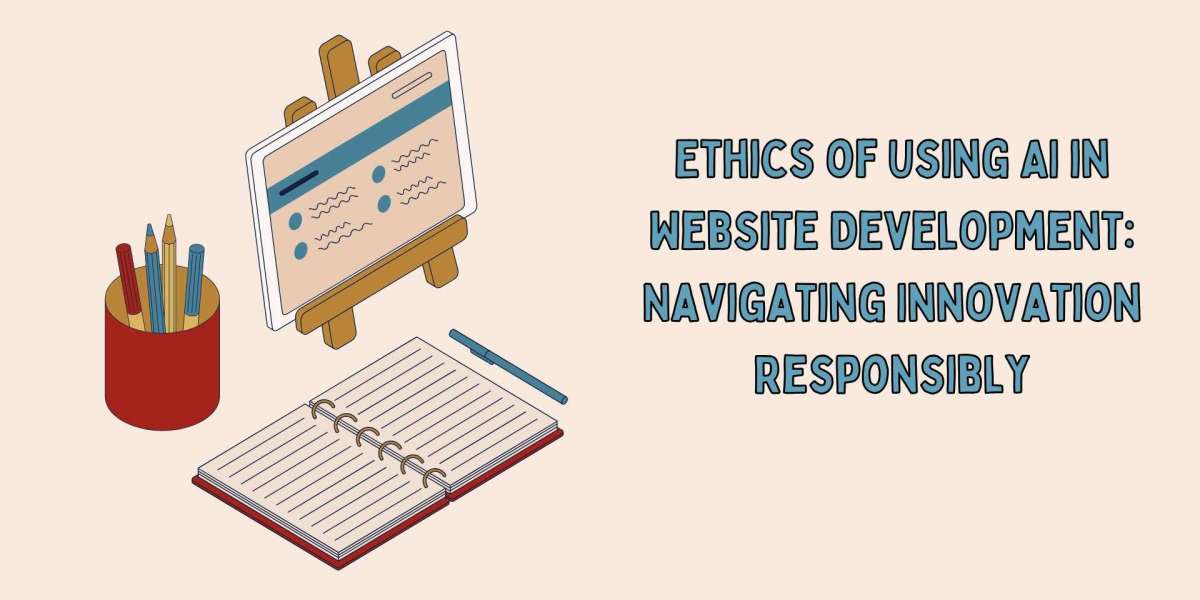Artificial Intelligence (AI) has rapidly transformed the landscape of website development. From automated coding tools and design assistants to chatbots and personalized user experiences, AI is revolutionizing how websites are conceived, built, and maintained. However, as this technology advances, so do the ethical concerns surrounding its use. The ethics of using AI in website development are multifaceted, touching on issues of privacy, transparency, fairness, job displacement, and accountability.
In this article, we explore these ethical dimensions and offer insight into how developers, businesses, and tech communities can use AI responsibly.
Data Privacy and User Consent
One of the foremost ethical issues in AI-driven website development is user data privacy. Many AI systems rely on collecting and analyzing vast amounts of user data to function effectively—whether for personalizing content, recommending products, or improving UX.
Informed Consent: Ethical AI implementation must ensure users are fully informed about what data is collected, how it will be used, and who will have access to it. Consent should be explicit, not buried in lengthy terms of service.
Data Minimization: Developers should only collect data that is absolutely necessary for the AI system to function. Retaining or analyzing excess personal information increases the risk of breaches and misuse.
Regulatory Compliance: Following data protection laws like GDPR, CCPA, and India’s Digital Personal Data Protection Act (DPDPA) is not just a legal requirement but an ethical one.
Algorithmic Transparency and Accountability
AI tools often operate as “black boxes,” making decisions without clearly explaining the logic behind them. In website development, this can lead to challenges in understanding or justifying how content is prioritized or how user interactions are handled.
Explainability: Developers must strive to use AI systems that offer transparency or interpretability. If an AI-based recommendation engine or content filter is used, users and administrators should understand how and why it works.
Accountability: When AI makes an error—such as a discriminatory suggestion or inappropriate content display—who is responsible? It’s ethically important to have human oversight and clearly defined accountability mechanisms.
Bias and Fairness
AI systems can inadvertently reflect or amplify existing biases present in their training data. In website development, this can manifest as:
Discriminatory UI/UX Elements: Personalized interfaces might cater better to certain demographics, neglecting others.
Search and Content Bias: AI-driven search or content suggestion tools might disproportionately promote content aligned with certain ideologies, backgrounds, or commercial interests.
Mitigating this requires diverse training datasets, ongoing bias audits, and inclusive design practices that consider users from different cultural, linguistic, and socioeconomic backgrounds.
Job Displacement and Human Labor
AI tools are increasingly capable of automating web design, code generation, content creation, and customer support. While this improves efficiency, it also raises concerns about the displacement of human developers, designers, and content writers.
Augmentation vs. Replacement: The ethical use of AI should focus on augmenting human capabilities rather than replacing them. This includes using AI to handle repetitive or low-level tasks while reserving complex, creative, or strategic decisions for humans.
Reskilling Opportunities: Organizations and educational institutions should invest in training programs to help professionals adapt and work alongside AI tools, rather than being left behind.
Intellectual Property and Plagiarism
AI-generated content—whether text, code, or images—poses questions about originality and ownership. For example:
Who owns AI-generated website content?
If AI generates code based on publicly available repositories, is that a copyright infringement?
Ethically, developers should ensure their AI tools are trained on appropriately licensed datasets and should credit sources where applicable. Transparency about which parts of a site are AI-generated also builds trust with users and clients.
User Manipulation and Dark Patterns
AI can be leveraged to create highly persuasive website designs, nudging users toward specific behaviors like purchases or subscriptions. However, when used manipulatively, this becomes unethical.
Dark Patterns: These are UI designs intended to trick users into actions they wouldn’t otherwise take—such as hidden opt-out options or misleading buttons.
Responsible Design: Ethical AI-driven design respects user autonomy, presents clear choices, and avoids exploiting psychological vulnerabilities.
Environmental Impact
AI systems, especially those involving large models or cloud infrastructure, can have a significant carbon footprint. Website development that relies heavily on AI must consider sustainability.
Efficiency Matters: Choose lightweight AI tools and optimize backend processes to reduce energy consumption.
Green Hosting: Consider hosting platforms that use renewable energy or offset their carbon emissions.
Inclusivity and Accessibility
AI offers opportunities to enhance accessibility—for instance, generating alt text for images or using speech recognition for navigation. However, if not carefully designed, AI can also exclude users with disabilities or those using non-standard devices.
Universal Design Principles: Ethical web developers should integrate AI tools that comply with Web Content Accessibility Guidelines (WCAG).
Continuous Testing: AI-enhanced features should be regularly tested with diverse user groups, including those with disabilities.
Conclusion: Toward Ethical AI in Web Development
The integration of AI in website development brings enormous potential for efficiency, personalization, and creativity. Yet, with great power comes great responsibility. Developers, businesses, and digital strategists must be vigilant about the ethical implications of their tools and decisions.
By prioritizing transparency, fairness, inclusivity, privacy, and sustainability, stakeholders can ensure that AI serves to enhance the digital experience without compromising core human values. Ethical AI is not just a technical concern—it is a moral commitment to build a better, more equitable web for all.







